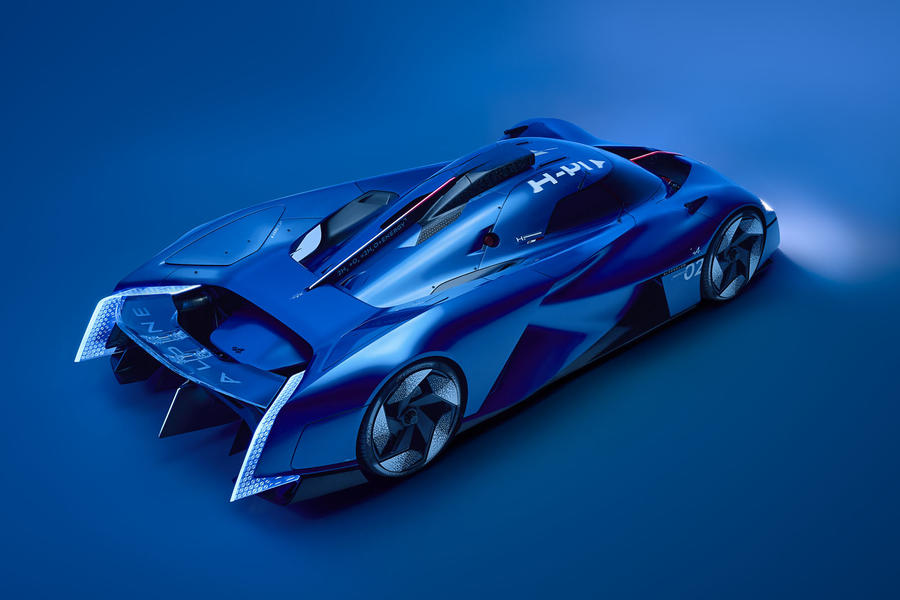Alpine has unveiled the Alpenglow Hy4, a hydrogen-combustion supercar that will be used to develop the technology for future road and track cars.
An evolution of the Alpenglow concept shown two years ago, it tomorrow makes its dynamic debut at Spa-Francorchamps in Belgium as a showcase of the performance potential of the emerging technology.
It is powered by a new turbocharged 2.0-litre four-cylinder engine said to be unrelated to the A110’s. Hydrogen is drawn from three tanks, each carrying 2.1kg of the gas at 700 bar of pressure. This is then injected into the cylinders at 40 bar alongside a spray of water that is said to reduce toxic NOx emissions.
The powerplant can rev to 7000rpm – 200rpm higher than its limit in the top-rung A110 R – and sends up to 335bhp through a sequential gearbox. Performance is said to be comparable to its petrol counterpart.
To accommodate the system, Alpine has tweaked the Alpenglow’s proportions compared with the 2022 concept. It sits slightly higher and the crash structure has been reworked to fit two occupants, for instance, and the sidepods now host the hydrogen tanks.
The car will carry out demonstration runs at several high-profile events, informing the development of an all-new hydrogen-powered V6 that’s under way at Alpine. That engine is earmarked to replace the Alpenglow’s existing four-pot by the end of this year and will most likely power the company’s entrant for the 2027 edition of the Le Mans 24 Hours – the first year that hydrogen-combustion cars will be allowed to compete. Alpine said it is “paying close attention” to such regulation changes across motorsport.

The brand also suggested that the V6 could even be bound for its future road cars. Bruno Famin, vice-president of Alpine Motorsports, said: “As part of our active participation in decarbonising motorsports, we see the hydrogen internal combustion engine as an extremely promising solution.
“We know that hydrogen will be an essential step in decarbonising the next generations of endurance cars and could also be for Formula 1 cars, particularly by switching to liquid storage for greater compactness and performance.








